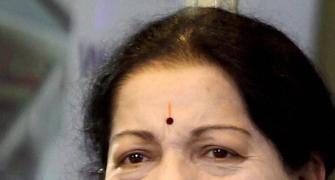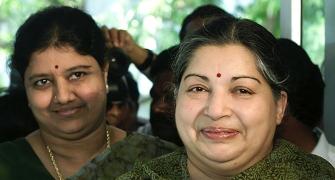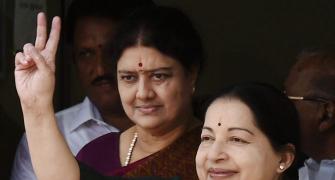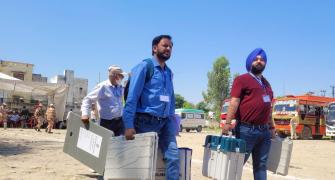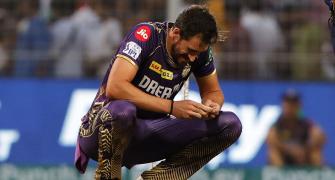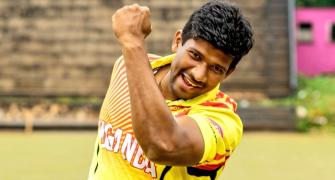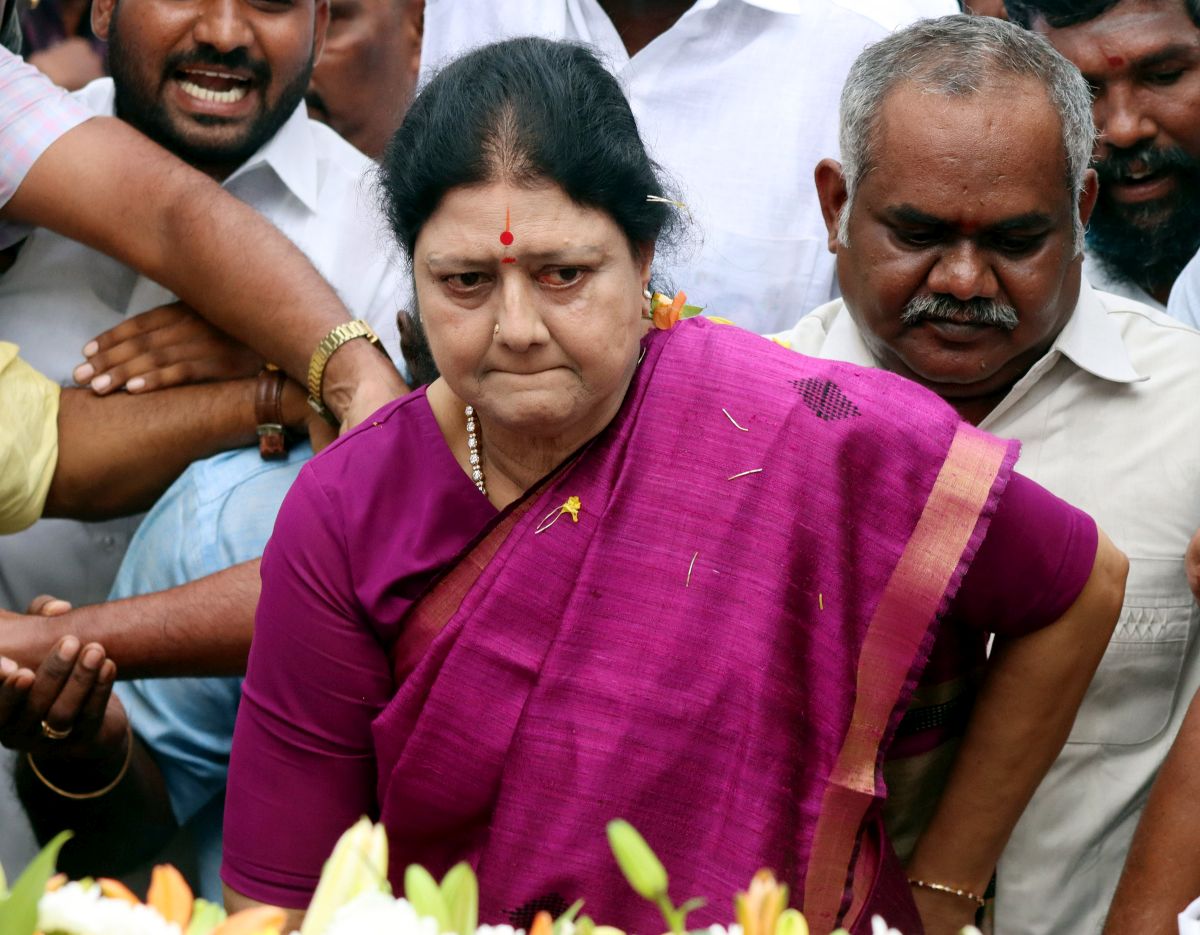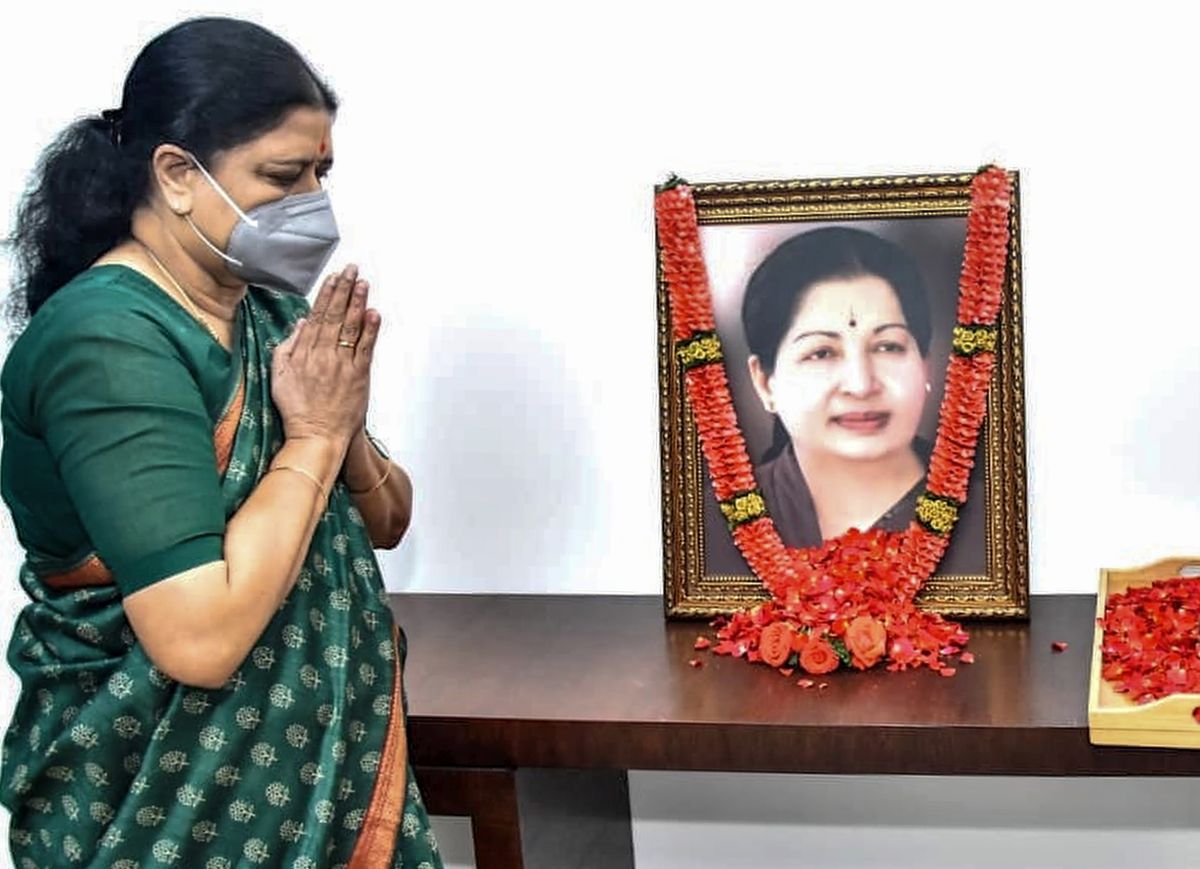Jayalalithaa was the third chief minister in Tamil Nadu to die in office, after her mentor M G Ramachandran (1987) and before that his mentor C N Annadurai (1969).
The state government should have evolved protocols for the medical care of the incumbent, and institutional memory should have guided the government and officials in the matter, points out N Sathiya Moorthy.
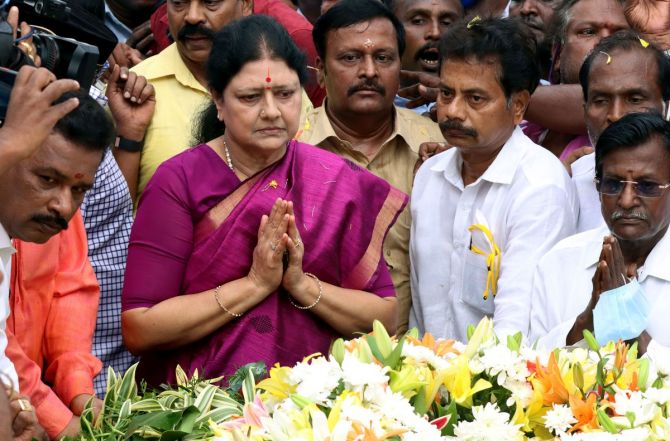
Now that the Tamil Nadu government has declared its decision to act on the Justice Arumugasaamy Commission report that probed the hospitalisation and death of former chief minister Jayalalithaa, could a probe against her live-in confidante V K Sasikala Natarajan lead to her prosecution and possible punishment under the law?
The panel, in its report, tabled this week in the state assembly with the 'action-taken-report' of the government, as decided by the cabinet under the Commissions of Inquiry Act, also found the doctors treating her, the hospital authorities, then health minister C Vijayabhaskar, and some officials, including then chief secretary Rama Mohana Rao and then health secretary J Radhakrishnan, now food secretary, 'at fault', requiring follow-up investigation and/or action.
Significantly, the commission found no fault with Sasikala's conduct in rushing Jayalalithaa to the hospital, as one of the unacknowledged causes for its constitution flowed from unsubstantiated rumours and social media posts that the hospitalisation was caused by a possible feud in which the incumbent chief minister was hurt.
Equally significant, the report found serious discrepancy in the timing of death -- on the night of December 5, 2016, as the hospital put out, as against the 'actual time' of the previous day evening.
The panel also questioned the decision of the doctors treating Jayalalithaa, not to do an angioplasty or cardio-thoracic surgery, as advised by two specialists from the US, and decided against it, based on the 'oral advice' of another specialist from the UK.
It also noted that the medical board comprising specialists from AIIMS, New Delhi, ended up endorsing the finding of the local hospital (and nothing more on their own?)
The Hindu has since quoted C Aryama Sundaram, senior advocate, Supreme Court, that it was 'unfathomable' that the Arumugasamy Commission would not rely on the guidance of the medical board, that too constituted at the instance of the Supreme Court, after Apollo Hospital, Chennai, had sought direction in the matter.
The court had upheld the hospital's contention that the probe was not qualified to adjudge technical matters pertaining to the line of treatment given to the late chief minister.
Sasikala has since declared that she would face future probes, legally.
The government too has said that it would act on the report, after getting the advice of legal luminaries, possibly including those outside the government's employ.
While it may not be difficult to fix accountability in the case of then health secretary Radhakrishnan through the official disciplinary process, even with respect to retired chief secretary Ram Mohana Rao, such proceedings might prove difficult to justify under the law.
What about Sasikala, then? While prima facie a case may lie against her as per the commission report, the findings are only suggestive -- the 'needle of suspicion', as mentioned in the Indira Gandhi assassination probe report.
Further probe, criminal prosecution and the like would require substantive evidence that should stand/withstand the test of well-established norms of criminal law and jurisprudence.
Broadly-speaking, the commission has found fault with Sasikala and her family members occupying many rooms in the hospital, on the same floor where Jayalalithaa's private ward was located.
There is a reference to the removal of CCTV cameras on the floor, and such other things, which fall within the realm of the hospital's administrative control, even if influenced/coerced/threatened by Sasikala to do so.
The same goes for discrepancies in the line of medical treatment, which even goes beyond the control of the hospital management, specifically to doctors treating Jaya.
Even if Sasikala were a medical doctor, as long as she was not Jayalalithaa's assigned doctor, she could not be held responsible for decisions that were taken and acted upon, even if it was under her behest.
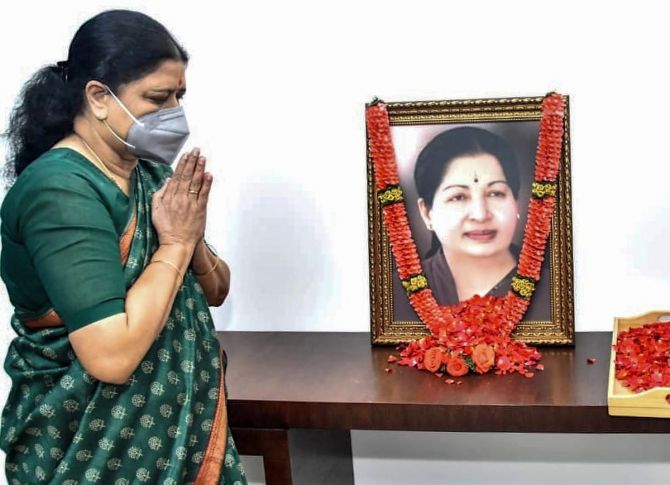
There is then a third question as to who was the legal guardian, if that's the term, for signing hospital papers on Jayalalithaa's behalf.
There is nothing in the commission report to show that Sasikala usurped that role, which was not hers anyway, unless it could be proved that it was the case and she had misrepresented facts.
The Jayalalithaa-Sasikala personal equations were clouded in mystery, just in the sense that the former had once announced in public that the latter was her 'foster sister', or 'udanpirava sahaodhari' in Tamil.
In a court document in one of the many corruption cases against her, that she being a spinster living alone, Sasikala was the caretaker of her house.
In the 'disproportionate assets case', in which a Bengaluru trial court sent both of them to four years in prison, Justice Michael da Cunha found substance in the prosecution submission that the too were linked for the purpose of the anti-corruption law, as Jayalalithaa had signed Sasikala's voter ID papers with the former's Poes Garden, Chennai, address as the latter's residence, as well.

But did any of it give Sasikala the right to decide the procedure to be followed in Jayalalthaa's medical treatment, as if she were the next-of-kin under the law, in the absence of immediate family members who were given access to the departed leader?
True, Sasikala lit Jayalalithaa's pyre in full media glare, but she was accompanied by the latter's nephew Deepak Jayakumar.
That was post facto as far as the events mentioned in the commission report are concerned.
The question is, did any or all of these give Sasikala any legal status vis a vis Jayalalithaa, for her to act as the latter's guardian, especially while the latter was hospitalised?
Incidentally, in dismissing Jaya's AIADMK state government nationalising her Poes Garden residence to create a memorial for her, the Madras high court ruled, again after her death, that only Deepak and his sister Deepa Jayakumar were the sole legal heirs to her properties, by virtue of they being the late chief minister's blood relations -- children of her late brother.
Jayalalithaa was the third chief minister in Tamil Nadu to die in office, after her mentor M G Ramachandran (1987) and before that his mentor C N Annadurai (1969).
The state government should have evolved protocols for the medical care of the incumbent, and institutional memory should have guided the government and officials in the matter.
So, the question if Sasikala misrepresented herself as Jaya's representative in the hospital, if it has happened, needs to be probed and proved in relation to multiple events and circumstances, and for their evidentiary value in eye of the law.
From a purely political angle, the state's ruling DMK may stand to benefit a wee bit, but not enough to upset the performance of anyone other than Sasikala and possibly her nephew T T V Dhinakaran.
Even without it all, Sasikala and Dhinakaran could forget their political future as nothing much existed after the poor showing in the Lok Sabha polls of 2019 and 2021 (assembly).
Three-time chief minister O Panneerselvam (OPS), who was fighting the leadership/ownership battle for the AIADMK with his successor Edappadi K Palaniswami (EPS) would have to give up his hopes of strengthening their collective Mukkulathore community vote-base with the Sasikala-Dhinakaran duo in the southern districts.
As if this were not enough, the Arumugasamy Commission has also said that as the number two in the cabinet, discharging the functions of the chief minister during Jaya's hospitalisation, OPS was in the know of Jaya's health condition at every turn.
He too may have some harsh questions to answer, as he and his ministerial and senior party colleagues had been going around claiming for weeks that Jayalalithaa was doing well and should be returning home, any time soon.
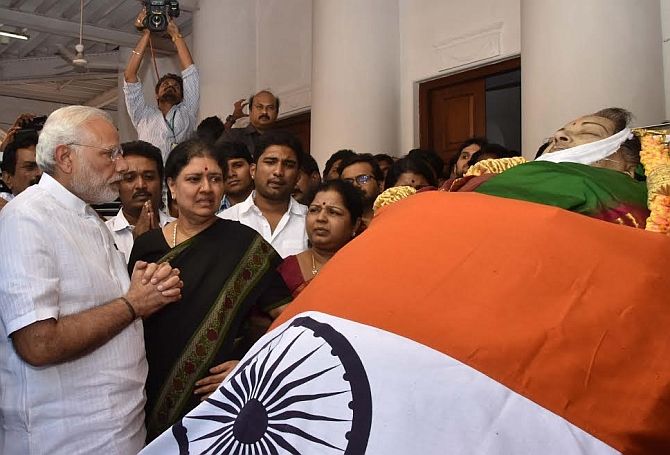
This does not however make things easier for EPS.
Another probe, under Justice Aruna Jagadeesan has exposed the former chief minister's lie in the Thoothukudi Sterlite row, in which 13 protestors were killed in police firing.
While recommending action against 17 policemen, from an IG-level official to constable for 'unprovoked' firing and departmental action against then district collector and others, the commission report, which was also tabled in the assembly the same day as the Jayalalithaa death probe findings, that EPS was not telling the truth when he claimed that he too knew about the incident only from television news bulletins.
Citing then chief secretary Girija Vaidhyanathan, then DGP T K Rajendran and then intelligence chief K N Sathyamurthy, the report said the chief minister was receiving minute-to-minute updates.
This was when on the day of the event, in May 2018, EPS told the state assembly that he learnt about it all only from television news channels.
Given that much water has flowed under the bridge in the Jayalalithaa death case, and the Thoothukudi firing incident is still a live issue in the port-town and neighbourhood, EPS may find it embarrassing to defend his lie in public, and also among the party cadres, even though that by itself would not tantamount to any criminality.
The irony facing the AIADMK factions is that they cannot complain that the state government had picked 'pliant judges' for the probes.
For, it was the EPS-led AIADMK government, in which OPS was the chief minister, which had ordered the probes and also named the chairs.
Of course, Sasikala can make such a claim as by then the EPS-OPS duo had joined hands to paint her black, but only after widespread claims came to be made about her alleged commissions and omissions in the death of a beloved leader. But that again by itself is not saying a lot!
N Sathiya Moorthy, veteran journalist and author, is a Chennai-based policy analyst and commentator.
Feature Presentation: Aslam Hunani/Rediff.com

